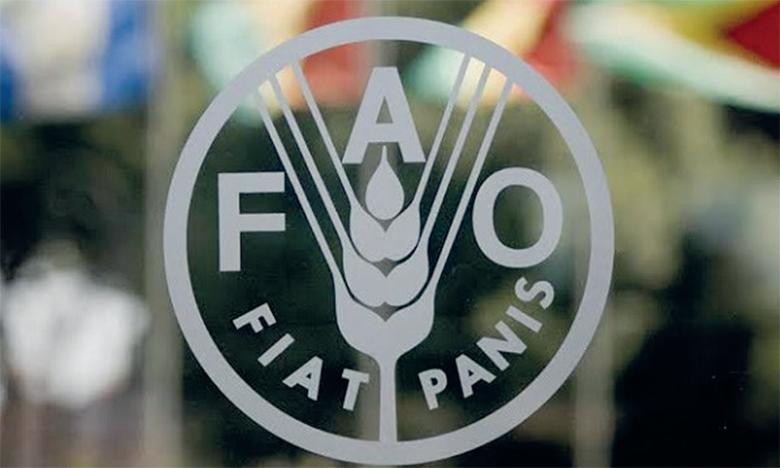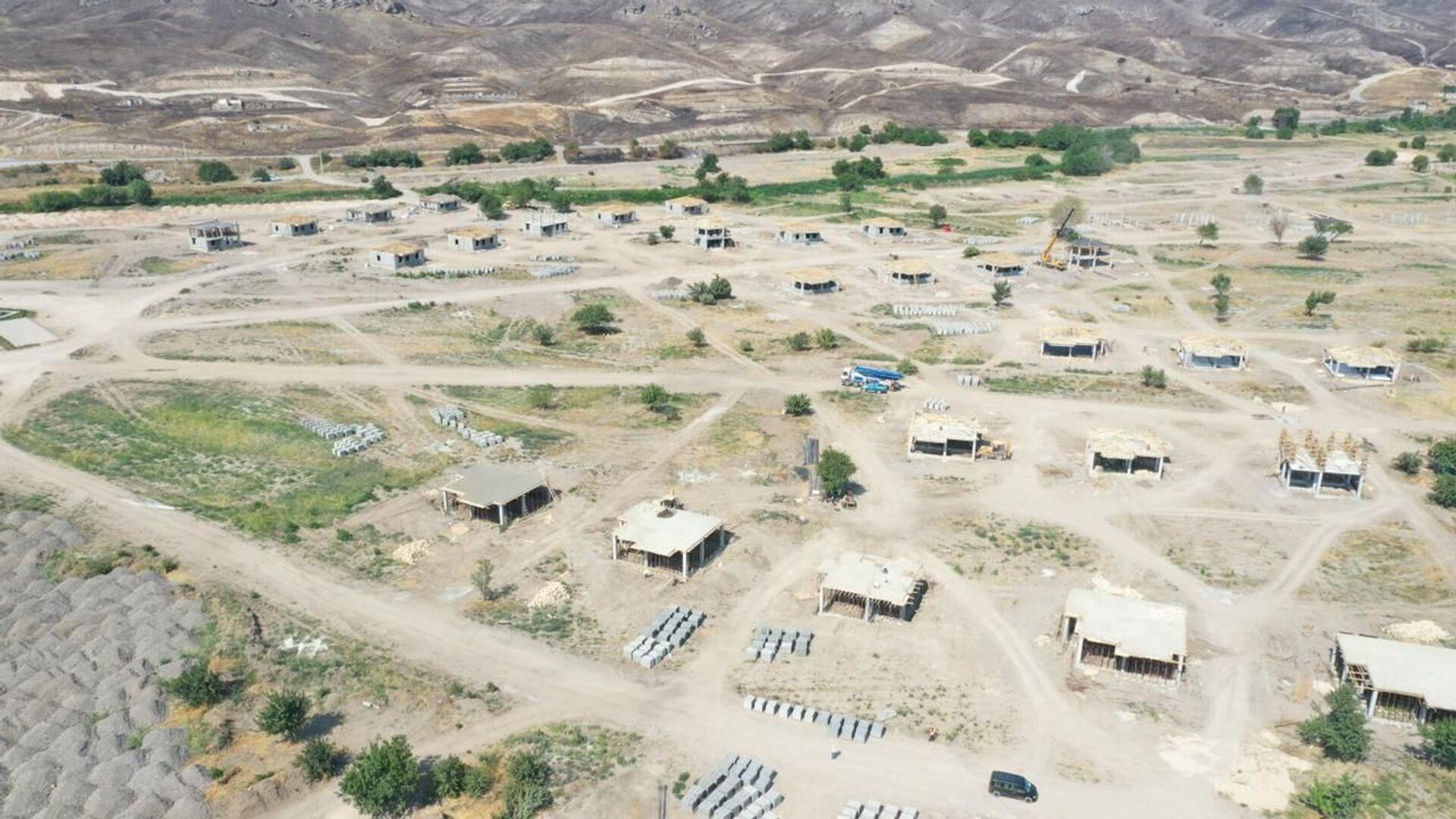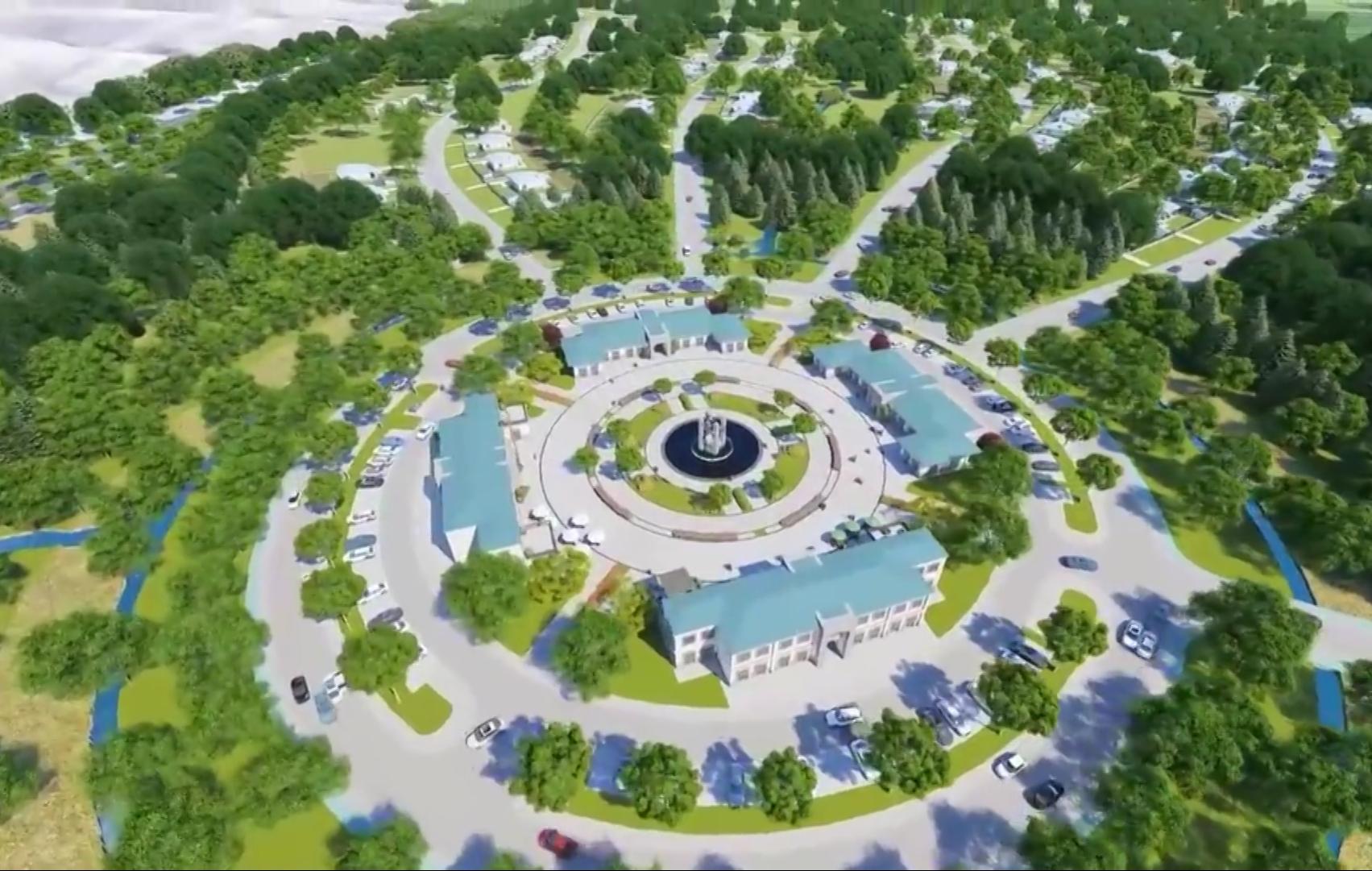FAO adopts Azerbaijan's experience in creating "smart villages" Caliber.Az review
Azerbaijan continues successful cooperation with the Food and Agriculture Organization (FAO) of the United Nations (UN) on several strategies and programs to respond to new challenges. In partnership with the FAO, Azerbaijan has implemented many of the UN targets on combating famine, food security, developing modern technologies in the agricultural sector, and today is ready to share best practices in the digitalisation of agriculture. The issues of cooperation on the introduction of IT technologies into agricultural production, digitalisation of management procedures, and control in this area were discussed yesterday in Baku during the international conference "Looking into the Future: Transition to Digital Agriculture", organized by the Azerbaijani Ministry of Agriculture with the FAO support.
For about 27 years, Azerbaijan has been cooperating with the FAO as a member state of this international organization. In partnership with the FAO, many UN targets in the fight against famine, ensuring food security, developing modern technologies in the agricultural sector, etc. have been implemented in the country. This joint work has not lost its relevance to this day, given the new challenges associated with the imbalance of global agricultural markets and rising food prices. Azerbaijan's cooperation with the FAO is moving to the new areas. In this connection, the Parliament decided to extend the term of the joint partnership program last November.

Continuing to cooperate with Azerbaijan in the main area - achievement of the UN Sustainable Development Goals, today FAO has designated the strengthening of partnership in the implementation of electronic systems in the agricultural sector as the most important country priority. “I want to thank Azerbaijan for carrying out successful reforms to digitalise the agricultural sector. Today, efforts to ensure the digitalisation of agriculture and the introduction of innovations are a key item on the FAO global agenda, and we hope that Azerbaijan's activities in this area will be successful,” FAO Director-General Qu Dongyu said during the Baku forum “Looking to the Future: Transition to Digital Agriculture".
Aspects of the introduction of innovative technologies in the agricultural sector were also discussed during a video conversation held on the same day between the President of Azerbaijan and the FAO Director-General. Noting that the development of agriculture and ensuring food security is one of the most important priorities of the government, Azerbaijani President Ilham Aliyev stressed that plans for the development of agriculture in the liberated territories are currently being developed. The most important area of the program for the revival of the agricultural sector in the Karabakh region is the introduction of high technologies in production and processing.
“Azerbaijan is effectively cooperating with the FAO on several strategies and programs to respond to new challenges. Today, we intend to talk about our experience in digitalisation of agriculture, as well as get acquainted with the achievements of other countries. We need to provide the digitalisation of the entire agricultural sector, as this will allow the sector to adapt to future transformation,” said Azerbaijani Minister of Agriculture Inam Karimov, speaking at the conference.
The minister added Azerbaijan has come a long way in digitalisation of agriculture, this work is being carried out in all districts of the country, and today advanced IT technologies are being introduced in the liberated territories.
Over the recent years, Azerbaijan has indeed managed to achieve significant progress in introducing modern information technologies into the process of managing and controlling agricultural production, connecting many hundreds of thousands of farms, as well as specialized processing enterprises and service units, to this mechanism. The essential role in these processes was played by the reforms of the last four years: in particular, we are talking about the "Electronic Agriculture Information System" (EAIS) created by the Agriculture Ministry. The electronic database of the system (Big Data) provides a clear picture of the volume and structure of crops grown, and crop forecasts, allowing farmers to be informed about the current supply and demand, helping to choose the most promising and profitable crops for this season. The EAIS mechanism has also played a unique role in establishing order for subsidizing over 450,000 farmers, strengthening control, and ensuring transparency in this process. Farmers, having passed a simplified registration procedure in EAIS, create their account, which indicates the location of the farm, the area of the land plot, the type of products grown, as well as the results of an agrochemical analysis of the soil. After that, farmers get access to subsidy programs, can get a yield forecast for their plot, and a lot of other useful information. The transparent and informative base of EAIS also underpins the preferential lending mechanism for farmers and the system of agricultural insurance, the effectiveness of which has noticeably increased over the past three years.

Ultimately, the creation of the EAIS helped involve unused lands in agricultural turnover, improve their fertility by more efficiently supplying farmers with subsidies for the purchase of fertilizers, and fuel, and also optimized water consumption in the districts.
The base of the EAIS is also replenished with information from the Azerbaijani low-orbit optical satellite Azersky, which provides valuable information about the resources of agricultural lands, their condition, water resources, erosion processes, and timely warning about climate change and land degradation. As part of the digitalisation program for agriculture in Azerbaijan, other advanced methods are also being applied: for example, the practice of installing GPS sensors on Agroleasing’s harvesting equipment has been introduced, which has made it possible to optimise and speed up agrotechnical work, pilot projects have been launched in several agricultural parks to automate the operation of artesian wells, economical irrigation systems using IoT systems (Internet of things) and telemetry, etc.
Today, efforts to digitalise agriculture in Azerbaijan also cover such a related area as food security. “As part of the project to strengthen agricultural activities in Baku and Sumgayit, work was launched in 2021 on the electronic identification of farm animals, which made it possible to ensure control over their health and the quality of their nutrition, etc., this made it possible to improve the quality of meat and dairy products sold on the market,” Chairman of the Food Safety Agency of Azerbaijan, Goshgar Tahmazli, said while attending the conference.
Advanced methods of digitalisation of agriculture using "green" technologies and computer systems for monitoring and managing agrotechnical processes will become the cornerstone for the development of the agricultural sector of the Karabakh and East Zangazur economic regions. In particular, we are talking about the implementation of pilot projects of "smart" villages being built in the Zangilan and Fuzuli districts.

“The “smart” project of Aghali village in the Zangilan district consists of five components, including the construction of enterprises, houses, the development of alternative energy, the introduction of computer systems that can be used to manage irrigation, gas systems, etc.,” said another forum participant, Director of the Agrarian Innovations Center under the Azerbaijan Ministry Agriculture, Akbar Abbasov.
In the village of Aghali, on an area of 110 hectares, the first stage of construction (using environmentally friendly and innovative materials) of 200 houses, four two-story non-residential buildings, a school for 360 students, and a kindergarten for 60 children has been completed. As part of the “smart” village project, a data and analytical center and a “smart” control system for irrigation systems and a 600-hectare crop area are being created, then automated farms and processing shops will be built, and drones will be actively used to control crops and land pollination. It is planned to develop digital technologies in the second "smart" village - Dovlatyarly in the Fuzuli district, where it is planned to install solar panels, as well as introduce digital systems in the development of aquaculture and poultry farms.

Azerbaijan is using the most advanced technologies and software solutions in the implementation of “smart” village projects, and actively cooperates with specialists from Turkey, Israel, and European countries. Generally, Azerbaijan, by accelerating the process of agriculture digitalisation, is now among the leaders of the post-Soviet space. Therefore, it is not surprising that the FAO evaluated Azerbaijan's experience as the best in the field of e-agriculture and digital transformation of the agro-industrial complex. “It is gratifying that FAO shares the most advanced experience in the world in the field of digitalisation of agriculture and actively cooperates in this area, including promoting the initiative to introduce a smart village,” Karimov noted, emphasizing that to implement this initiative other states will actively use the experience of creating "smart" villages in Azerbaijan.








